UK: Leaders in pre-election clash over NHS, Brexit and economy
From BBC
Political parties are readying themselves for a general election campaign after MPs voted for a 12 December poll
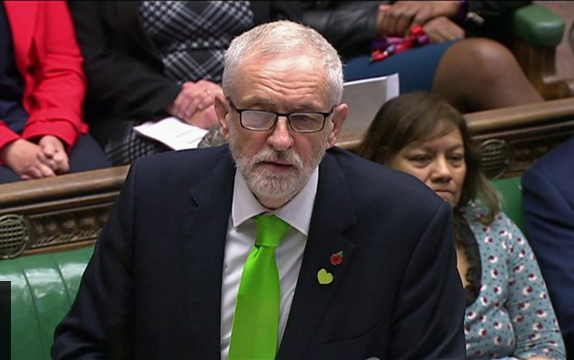
Boris Johnson and Jeremy Corbyn have clashed over the NHS, Brexit and leadership at the last Prime Minister’s Questions before the general election.
The Labour leader said voters had a “once in a generation” chance to save the NHS, which was in “greater danger” than at any time in its history.
He said voters had the chance to back “real change” and an end to austerity.
But the PM warned of “economic catastrophe” and “political disaster” if Labour got into power.
Political parties are readying themselves for a general election campaign after MPs voted for a 12 December poll.
The legislation approved by MPs on Tuesday has begun its passage through the House of Lords, where it is not expected to be opposed.
And the electoral authorities have set a deadline of the end of Tuesday 26 November for people to register to vote. The cut-off point to apply for postal votes is the same day, but at 17:00 GMT.
In their final encounter in Parliament before the election, the two leaders exchanged barbs over their political values and disputed their parties’ respective records on the NHS.
Final Commons clash, for now
The Labour leader accused the PM – who he has challenged to a one-on-one TV debate – of running down the health service, saying cuts to funding had contributed to rising waiting times for cancer treatment and operations.
He said a Labour government would reverse what he said was the growing privatisation of the NHS, saying it existed to “make people better, not make the wealthy few richer”.
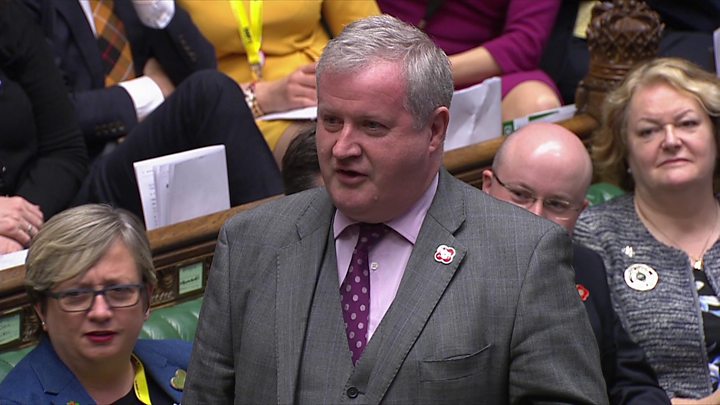

“The choice at this election cannot be clearer,” he said.
“People have the choice to vote for real change after years of Conservative and Lib Dem cuts, privatisation and tax handouts for the richest.”
Mr Johnson said he agreed voters faced a “stark choice” between a government spending “unrivalled” sums on the NHS and a Labour party that would “wreck the economy”.
Dismissing the Labour leader as an “Islingtonian protester” rather than a real leader, he said Mr Corbyn’s “flip-flopping” over Brexit would lead to more years of “toxic, tedious, torpor”.
While 2020 would be a “wonderful year” under a Tory government, he said electing Jeremy Corbyn would result in further referendums on Europe and Scottish independence.
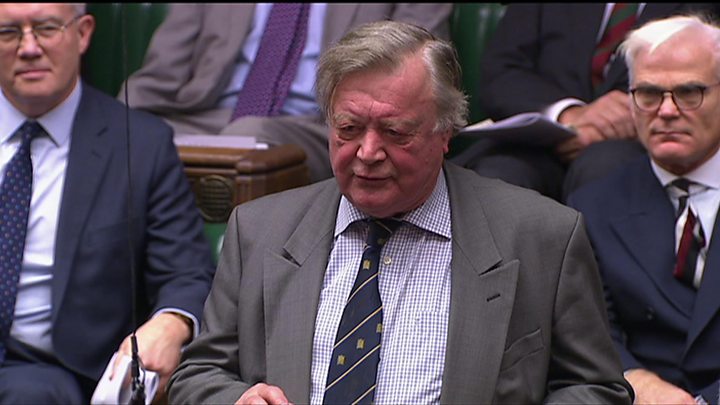

“That is the future. Drift and dither under the Labour Party or taking the country forward to a brighter future under the Conservatives. That is the choice the country faces.”
The election comes after the EU extended the UK’s exit deadline to 31 January 2020 – although Brexit can happen earlier if a deal is agreed by MPs.





What happens next?
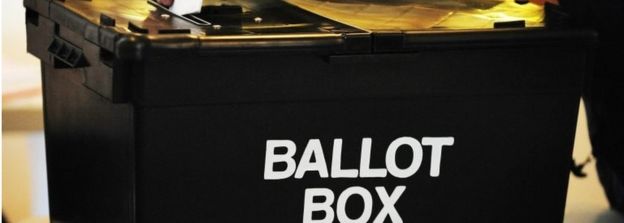

- The Early Parliamentary General Election Bill – which prompts the election – will be debated in the House of Lords on Wednesday
- If peers make any amendments to the bill, it will head back to the Commons for MPs to approve or reject the changes
- Once passed, the bill will receive Royal Assent – when the Queen formally agrees to the bill becoming law
- On Monday 4 November, MPs are due to elect a new Speaker to replace John Bercow
- Just after midnight on Wednesday 6 November, Parliament will be shut down or “dissolved” – meaning every seat in the House of Commons becomes vacant
- Five weeks later, the country will go to the polls for the first December election since 1923







The legislation approved by MPs now must be rubber stamped by the House of Lords.
It would be pretty strange if unelected peers up the corridor from the green benches decided to say no or throw spanners in the works of a decision made by the House of Commons last night.
Unless something very strange happens, we are now on for an election.
Both sides are very, very nervous about what might unfold. And both sides are right to be nervous.
The two main party leaders, in a strange kind of mirror of each other, are happy campaigners, but divisive characters.
Both of them will try to set the agenda, but they can’t know where this will all take us.
They can’t know if it will be their issues they’re able to talk about at length, but that’s the glory of elections – it’s up to voters to set the terms.
They decide the things they care about, they are interested in and they will put politicians on the spot about.





Opening skirmishes
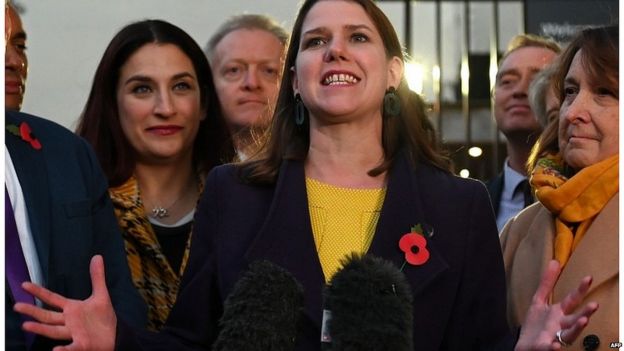

Speaking outside Parliament, Lib Dem leader Jo Swinson said her party was “on the up” and had a larger war chest at its disposal than ever before going into an election.
“Make no mistake, I stand ready to take on Boris Johnson and Jeremy Corbyn as a candidate to be prime minister,” she said.
“We have a bold vision to stop Brexit and build a better, brighter future for the country.”
For the Scottish National Party, Scotland’s First Minister Nicola Sturgeon said an election was an opportunity for the country to hold another independence referendum.
“A win for the SNP will be an unequivocal and irresistible demand for Scotland’s right to choose our own future,” she said.
But the Scottish Conservatives claimed voting for their party would keep Scotland in the UK.
Brexit Party leader Nigel Farage welcomed the election, tweeting the deadlock had been “broken” and “Brexit now has a chance to succeed”.
Meanwhile, an attempt by Boris Johnson to unite his party by re-admitting 10 Tory Brexit rebels has been hit by a row over the party’s refusal to give the whip back to Amber Rudd – the former home secretary who has said she is standing down as an MP.





Electoral pacts and coalitions
The smaller parties are already talking about striking deals with each other, which could see candidates standing aside in areas where their Remain-supporting rivals have a better chance of winning.
Ms Swinson said there were a “small number of seats” where “arrangements” could be struck with other parties to give an anti-Brexit candidate the best chance of winning.
Green Party co-leader Jonathan Bartley told BBC Breakfast it was “no secret” that the Greens were “talking to the Lib Dems and Plaid” but “nothing has been finalised”.
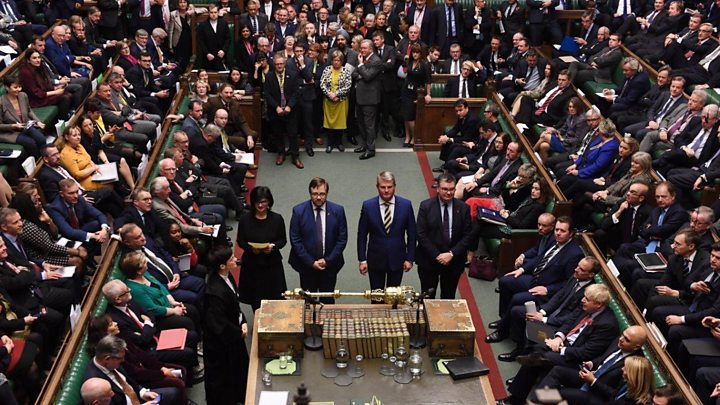

He said the ideas was to get “a big block of MPs in Parliament who want a people’s vote, want to remain in the EU because they think it’s best for the UK to do that”.
Plaid leader Adam Price said his party was “open to working with others to secure our European future”.
Details of which candidates are standing and where will be published at 17:00 GMT on 14 November – as will information about the location of polling stations.
The party leaders are also facing questions about whether they would form a coalition, if the election resulted in another hung Parliament.
Asked if she would join forces with Labour or the Conservatives, Jo Swinson said: “I can’t be clearer – neither Boris Johnson nor Jeremy Corbyn is fit to be prime minister.”
Labour’s John McDonnell told BBC Breakfast: “There will be no deals, no coalition. We will go in as a majority government. If we don’t win an overall majority, we will have a minority government.”
For more on this story and video go to: https://www.bbc.com/news/uk-politics-50230931





